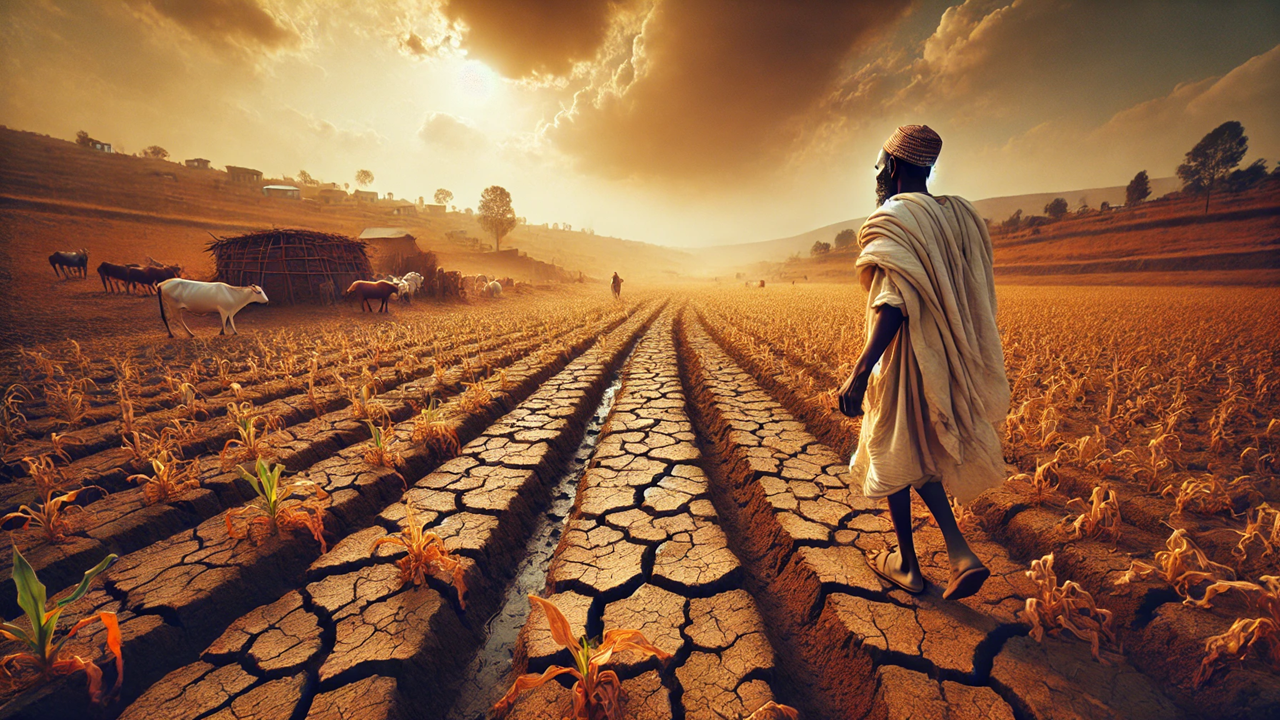Ethiopia's Economic Struggles: Conflict, Inflation, and Climate Shocks Threaten Progress
Ethiopia's progress in reducing poverty has faced severe setbacks due to conflicts, inflation, and climate shocks. The World Bank’s latest report highlights key challenges and policy recommendations to address economic instability, gender disparities, and structural barriers to growth. Urgent action is needed to stabilize the economy and support vulnerable communities.

The World Bank’s latest Ethiopia Poverty and Equity Assessment report provides a stark analysis of the country’s economic and social landscape, highlighting how recent crises have disrupted decades of poverty reduction efforts. Despite past progress, Ethiopia now faces growing challenges from conflict, climate shocks, inflation, and structural economic hurdles. Ethiopia has historically made strides in poverty reduction, but recent years have seen a troubling reversal. The COVID-19 pandemic, internal conflicts, and economic instability have slowed mobility, with fewer Ethiopians escaping poverty. The disparity between rural and urban poverty remains wide, and job losses in cities have increased vulnerability. Armed conflicts, particularly in northern Ethiopia, have led to mass displacement and economic disruption. Coupled with climate-induced droughts and floods, agricultural productivity has suffered, exacerbating food insecurity and deepening poverty levels. The report underscores the growing link between environmental unpredictability and household welfare. The Ethiopian economy is struggling with soaring inflation, especially for essential goods like food. Exchange rate adjustments have further burdened low-income households, raising import costs and limiting economic growth. While some policy reforms are in place to stabilize inflation, their effectiveness remains uncertain. The country’s heavy reliance on state-owned enterprises and a largely government-controlled economy have contributed to inefficiencies and debt accumulation. High unemployment and limited social protection mechanisms add to the economic strain, making private sector expansion a crucial area for reform. Women and marginalized communities face heightened economic challenges due to limited access to education, employment, and financial services. Addressing gender-based inequalities through policy interventions is essential for improving overall economic resilience. The report calls for comprehensive strategies, including strengthening conflict resolution mechanisms to stabilize the country, enhancing climate resilience in agriculture and disaster response systems, implementing inflation control measures to protect vulnerable populations, encouraging private sector investment to boost job creation, and expanding social protection programs, such as direct cash transfers, to support the most affected communities. Ethiopia stands at a critical juncture where proactive policies and structural reforms are necessary to regain economic momentum. The World Bank’s Ethiopia Poverty and Equity Assessment serves as a crucial blueprint for policymakers to navigate these challenges, ensuring inclusive growth and sustainable poverty reduction.
- FIRST PUBLISHED IN:
- Devdiscourse










